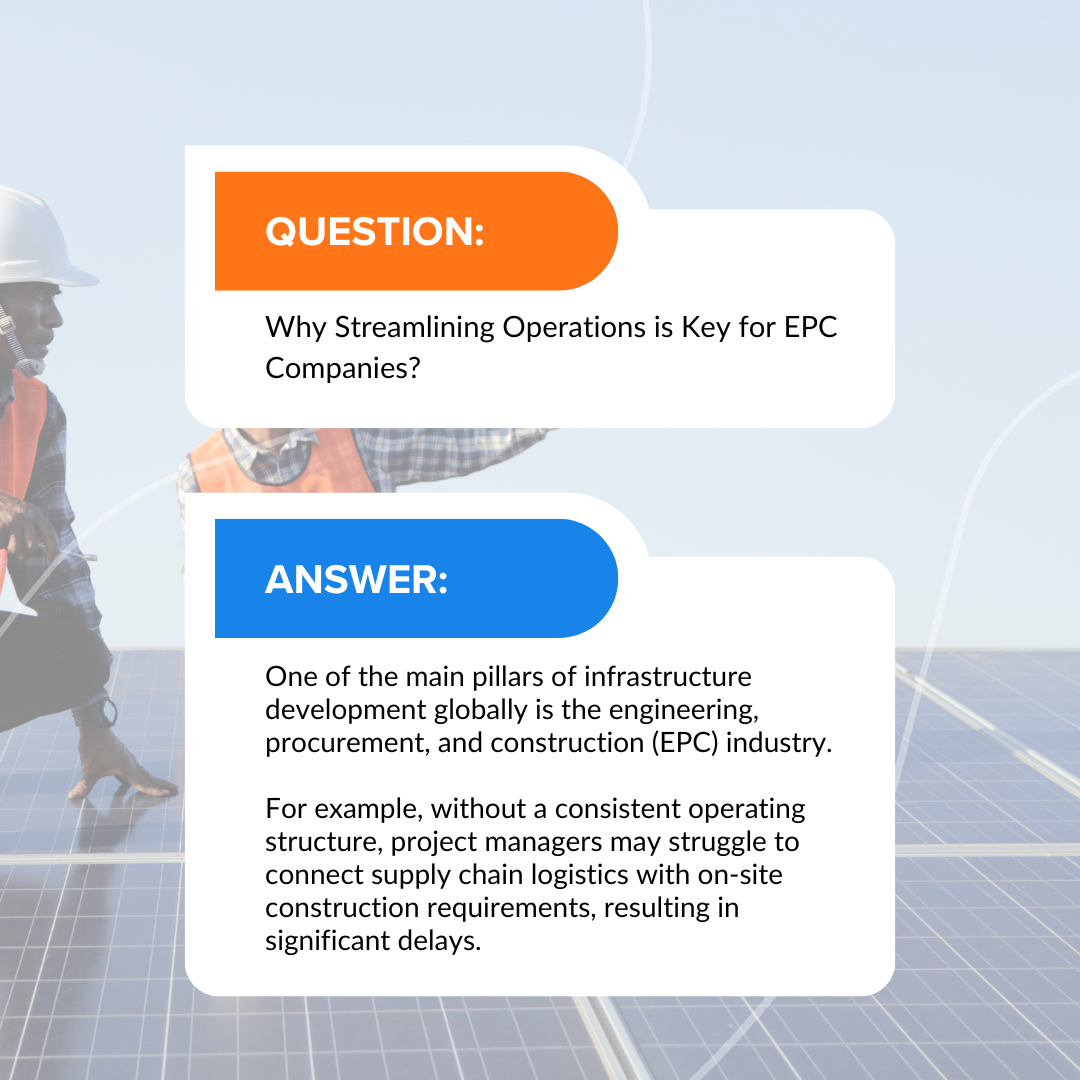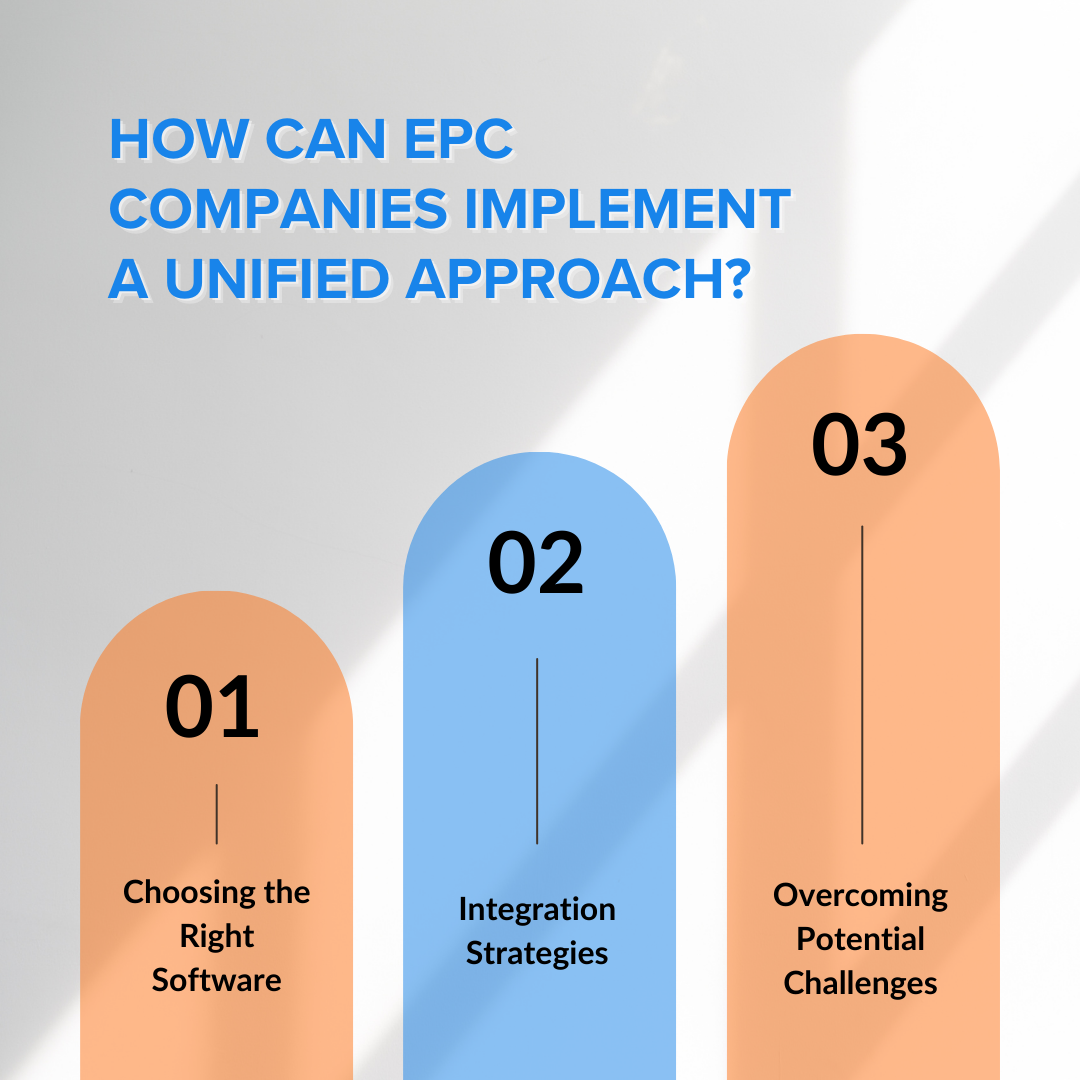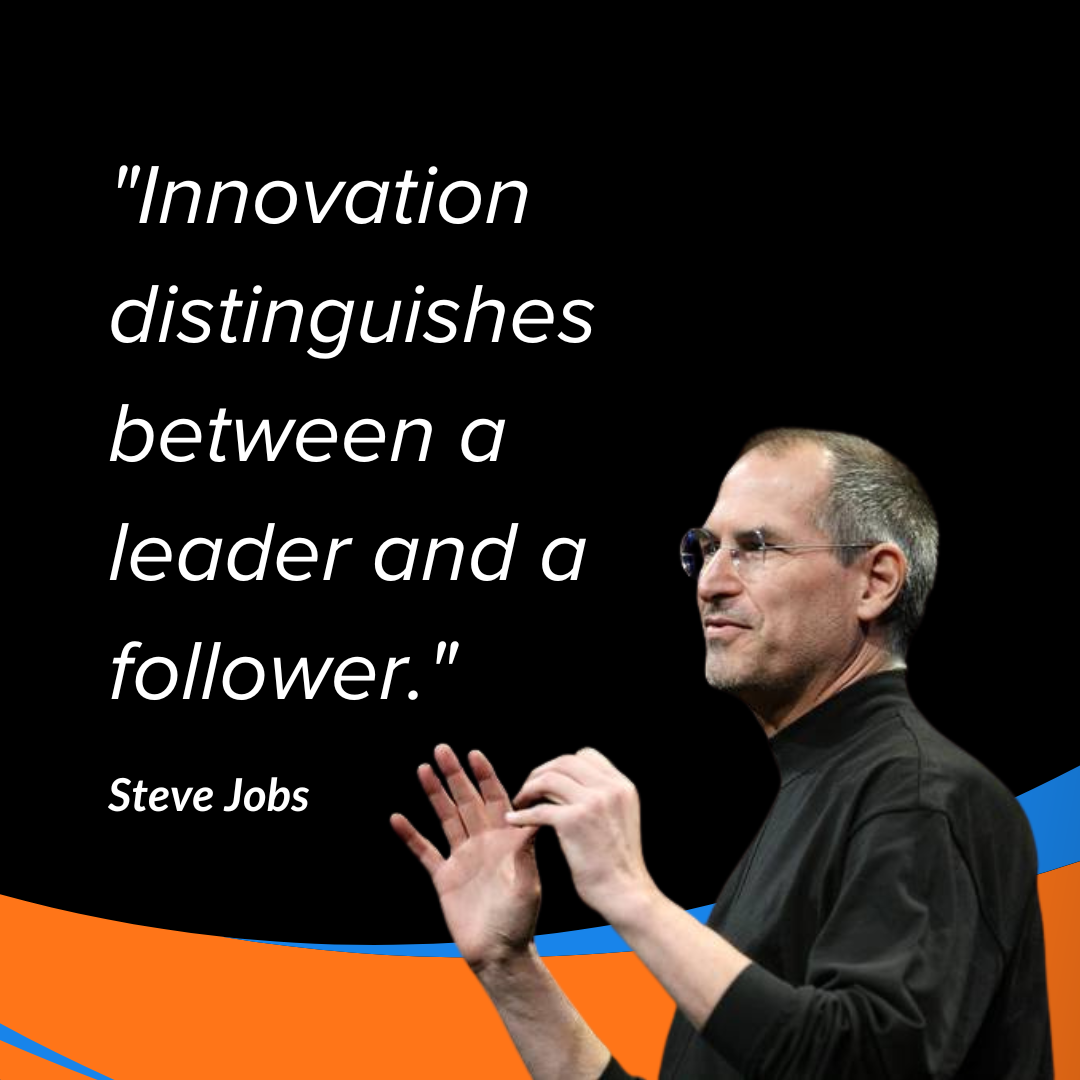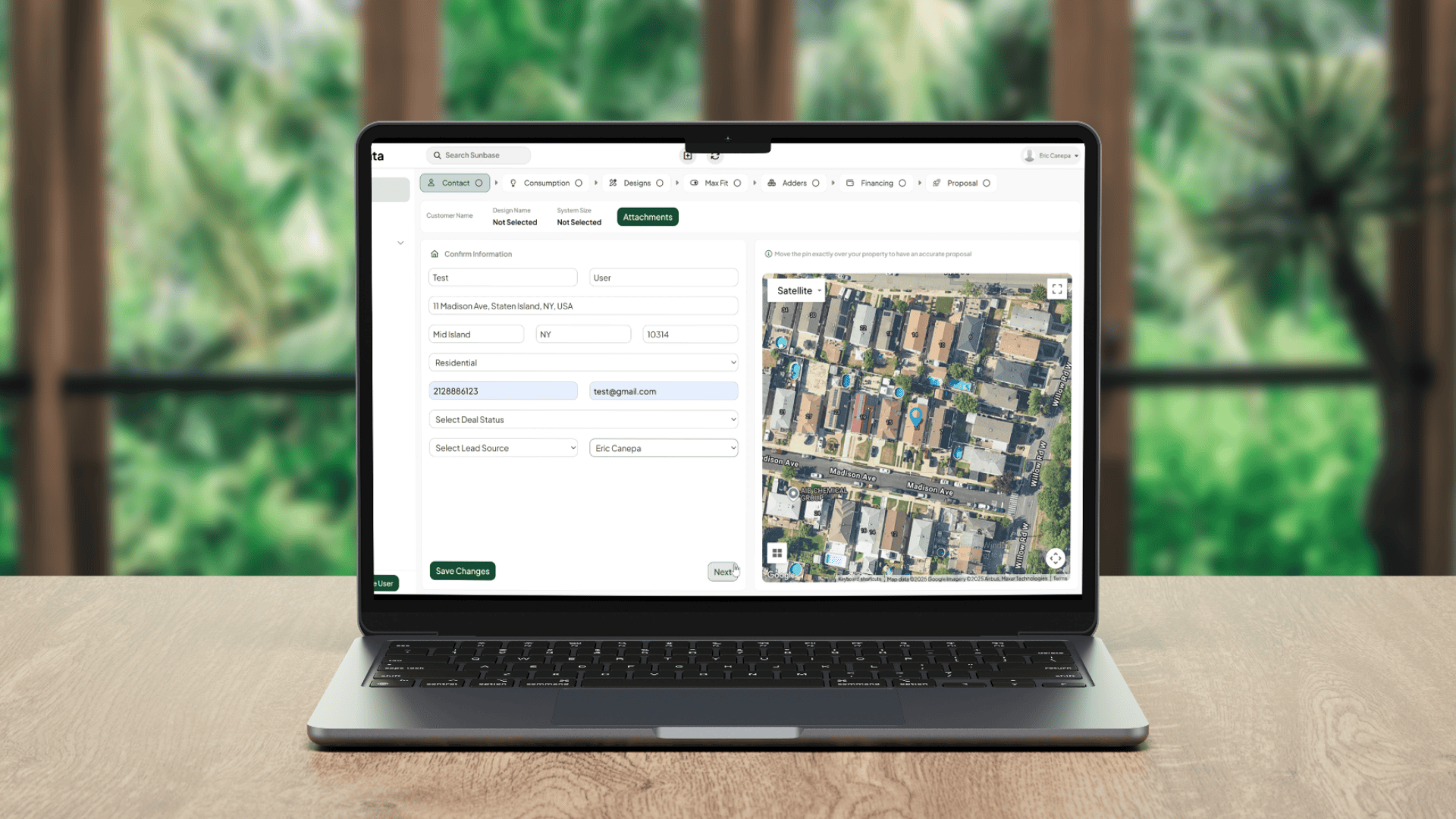October 23, 2024
Solar Design Software
The solar EPC team was caught in a web of mismatched software, with design data in one system, customer information in another, and project timelines in yet another. With each new client, they faced the frustration of copying data back and forth.
But what if they could merge these into a single, unified platform?
Integrating solar design software with CRM is a holistic approach that can improve project management, customer communication, and efficiency.
Let's see how and why such integration can revolutionize operations for EPC companies.
Key Takeaways
- A unified approach enables EPC businesses to handle the entire sales and project lifecycle—from first proposal to final installation—on a single platform, saving time and resources.
- Data synchronization eliminates manual entry, which lowers mistakes and boosts productivity.
- Utilizing unified data yields significant benefits in project performance, customer relations, and business operations.
- Integrated software allows real-time tracking, automated upgrades, and increased project visibility.
- It allows for the seamless management of larger customer bases and more complicated projects, ensuring that expansion is manageable and sustainable.
Why Streamlining Operations is Key for EPC Companies?

One of the main pillars of infrastructure development globally is the engineering, procurement, and construction (EPC) industry. Despite their vital role, many EPC businesses have operational inefficiencies that can hinder project delivery and increase costs.
For many businesses, streamlining operations has become essential as it provides greater productivity, lower costs, and faster completion times for projects. EPC businesses that ignore modernization face several difficulties.
For example, without a consistent operating structure, project managers may struggle to connect supply chain logistics with on-site construction requirements, resulting in significant delays.
Key Statistic:
According to a survey from the National Renewable Energy Laboratory (NREL), solar design and project management software can save up to 30% on soft expenditures such as personnel, permitting, and supply chain logistics. This helps EPC businesses manage more projects more profitably by increasing their efficiency.
What are the benefits of Integrating Solar Design Software with CRM?

Ever wondered what harmony in a solar project looks like?
Let's explore the numerous benefits of this integration and how it can revolutionize the solar EPC industry.
1. Improved Data Synchronization
Every detail counts!
Precise and up-to-date statistics are major aspects of any successful solar installation. When design software and CRM are integrated, there is no need for manual data entry because information flows between them smoothly.
Solar projects can proceed faster, as updated client information and design specifications are always available, reducing errors and confusion.
2. Streamlined Sales and Design Processes
Solar EPC companies can immediately link the sales team to design processes by combining CRM with solar design technologies. This connectivity enables sales personnel to immediately obtain correct solar system designs and proposals, which speeds up the sales process.
Solar professionals may deliver accurate estimates and designs, which results in a more efficient sales process and generates exceptional PV designs straight from customer data.
For example, a solar business experienced a huge reduction in lead conversion time following the implementation of an integrated system, which enabled it to take advantage of sales possibilities more quickly.
Discover How Solar Design Software Revolutionizes Remote Site Assessments for EPC Contractors.
3. Simplified Project Management
Simplification is transitioning from complexity to clarity.
Overseeing multiple projects at once can be daunting until tools come together and management becomes easier.
Within a single platform, teams can monitor every stage of a project, from the first sales contact to design and installation. This saves delays, prevents communication breakdowns, and allows project managers to monitor deadlines, resource allocation, and project milestones.
4. Improved Collaboration Between Teams
In the solar sector, effective teamwork is needed for project execution as multiple teams need to work together harmoniously.
The design team can quickly adapt to consumer preferences, while project managers stay updated on design changes, ensuring efficient project management and optimized energy generation for clients.
Integration promotes improved teamwork and communication by breaking the barriers that separate organizations. After adopting this strategy, many solar companies discovered that cross-departmental cooperation increased, leading to more innovative and well-coordinated project execution.
5. Data-Driven Decision Making
Data is a superpower when making a decision!
The integration enables solar enterprises to make data-driven decisions based on design trends, customer behavior, and project performance, improving future outcomes and sales methods.
This skill facilitates trend identification, forecasting the demand, and more effective service customization to match client needs which ultimately results in a significant boost in client retention.
6. Scalability for Growing Businesses
Ensure your solar company can handle an increasing number of solar systems without breaking a sweat.
Scalability becomes an important consideration as solar firms grow. With integrated systems, you may expand your business's capacity to handle more clients, projects, and data without sacrificing efficiency.
This flexibility guarantees that businesses can expand without difficulty and keep providing top-notch services.
7. Cost Savings and Increased Profitability
Lastly, what’s better than savings and increased profitability?
This integration converts efficiency into profit by minimizing errors, speeding up processes, and empowering teams, fueling your solar business for the long term.
For instance, after integrating its systems, EPC companies can increase profitability, mostly as a result of reduced expenses and higher project turnover.
Read our blog for Expanding Your Market Reach: Strategies for Solar EPC Companies.
How Can EPC Companies Implement a Unified Approach?

Here's a comprehensive guide on how EPC companies can successfully implement this approach:
1. Choosing the Right Software
EPC companies should prioritize software that meets their operational requirements along with development objectives. This includes:
- Compatibility: Ensure software compatibility with existing systems for seamless integration, preventing replacements or upgrades, and ensuring long-term usability.
- User-Friendliness: Selecting software with an intuitive interface and simple user interface can speed up software adoption and reduce staff learning curves.
2. Integration Strategies
Careful planning and implementation are necessary when implementing a cohesive software system. Consider these strategies:
- Phased Implementation: To reduce disruption and allow teams to adjust gradually, implement a phased rollout, beginning with essential modules and progressively integrating other components.
- Pilot Testing: Prior to a company-wide launch, carry out pilot tests with a limited sample of users. This helps in the early detection of possible problems and offers insightful information for improving the integration process.
3. Overcoming Potential Challenges
Integration is not without its challenges.
Here are some prevalent problems that EPC companies may face, along with ways to overcome them:
- Data Migration Issues: Moving data from older systems to new platforms can be difficult. To remedy this, ensure that data is thoroughly mapped and validated. To manage the relocation process and reduce the chance of data loss, hire IT specialists.
- Resistance to Change: Out of uncertainty or fear of the unknown, workers may oppose new procedures. To counter this, include them early in the decision-making process, provide them with thorough training, and emphasize the advantages of the new system.
- Technical issues: Technical glitches are unavoidable. Create a dedicated support crew to quickly troubleshoot and fix problems. Another important factor in reducing downtime is regular system maintenance and upgrades.
To learn more here's the IT Directors' Guide to Integrating Solar Design Software with Existing Systems.
Why is Sunbase Solar Software the ideal tool for EPC companies?

Let's find out:
1. All-in-One Integration Capabilities
Sunbase seamlessly integrates with current systems, such as Solaredge systems, and guarantees a streamlined workflow in the whole process. Through the integration of many software products into a unified system, this integration capacity optimizes operational efficiency.
2. Intuitive Solar Design Features
Sunbase's strong design tool, designed to generate exceptional PV designs that offer maximized energy production, lies at the heart of its features. Its user-friendly interface enables designers to create optimized solar solutions that maximize the sun's power.
3. Robust CRM for Solar Sales
Sunbase gives sales reps the tools they need to close more deals by providing a strong CRM.
Its extensive customer relationship management solutions improve customer interactions and increase sales efficiency, guaranteeing that customers receive excellent service.
4. Real-Time Data and Project Tracking
Sunbase provides EPC organizations with real-time data and project tracking, which are fundamental for effective financial analysis. With the help of this tool, project managers can make decisions quickly and intelligently, keeping their projects on schedule and within budget.
5. Customizable and Scalable for Growing EPC Needs
Recognizing that every business is unique, Sunbase provides adaptable solutions that evolve with your organization. This versatility comes without the burden of skyrocketing subscription fees, making it an economical choice for growing businesses.
Here's the Top 10 Reasons Solar EPC Companies Choose Sunbase Solar Design Software.
In a nutshell

As the renowned entrepreneur Steve Jobs once stated, "Innovation distinguishes between a leader and a follower."
Embracing this integrated approach allows EPC companies to lead confidently into a sustainable future and set innovative standards in the solar sector.
Integrating solar design software with CRM is more than simply a technical upgrade; it's a game changer for EPC companies.
Combining Solar Design Software with CRM systems marks an essential turning point for EPC organizations looking to boost their efficiency, collaboration, and project outcomes.
About Sunbase
Why juggle multiple tools when you can have them all in one place?
It's time to maximize energy production and minimize hassle with Sunbase! Reach out now!
FAQ's
Q1. What is the purpose of integrating solar design software with CRM for EPC companies?
Ans- Integration streamlines sales, design, and operations, boosting efficiency, productivity, and growth.
Q2. How complex is the integration process?
Ans- Integration complexity varies depending on software compatibility and customization requirements.
Q3. What types of CRM software can be integrated with solar design tools?
Ans- Sunbase is one of a few solar-specific CRM systems that is made to work easily with common solar design tools. This guarantees that the CRM will function well with other design applications, saving businesses the headaches of utilizing disparate systems and fostering a more connected workflow.
One Platform. Zero Chaos. Run Your Entire Business in One Place.
Sunbase replaces your CRM, proposals, scheduling, job tracking, and reporting tools — all inside one clean, connected platform.
About Sunbase
The All-In-One Platform to Run Your Entire Business
Sunbase helps you organize operations, streamline daily workflows, and manage everything - from first customer contact to final project deliver- in one connected system.
Our Mission
- Organize your business.
- Optimize your workflow.
- Automate what slows you down.
Why Businesses Choose Sunbase
One Connected Workflow
Replace scattered tools and manual processes with a single platform that brings together your team, tasks, customers, jobs, and performance data.
🌎 Global Presence
Serving the United States, Canada, India, LATAM, Australia, and 10+ international markets.
👥 11,000+ Users
Trusted by contractors, installers, project managers, sales teams, and field technicians.
🏗️ Built for All Sizes
From small contracting teams to fast-growing enterprises, Sunbase adapts to your workflow.
Useful Links For You
Stop Managing Your Business Manually. Automate It.
Sunbase automates workflows, reduces mistakes, and helps your team get more done - without hiring extra staff or juggling multiple tools.











